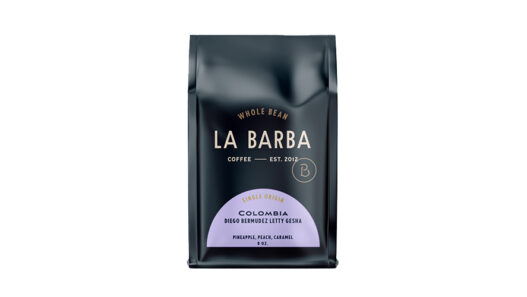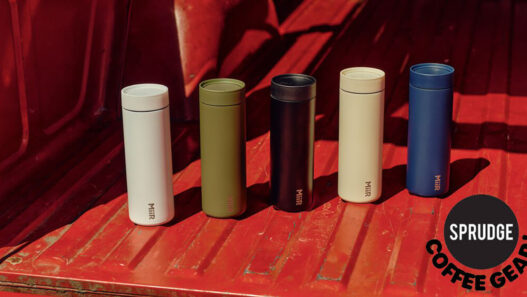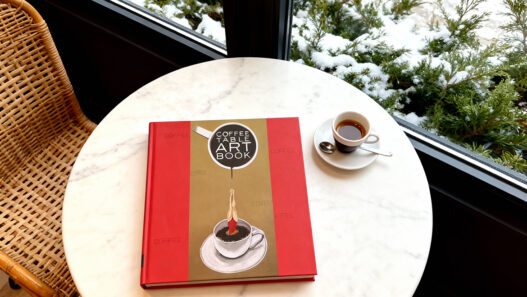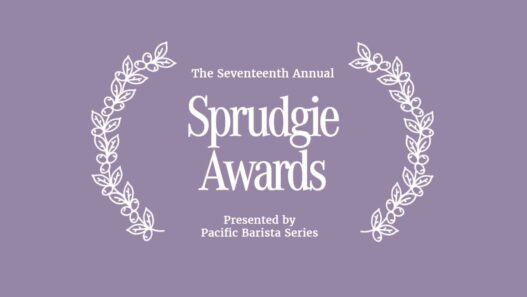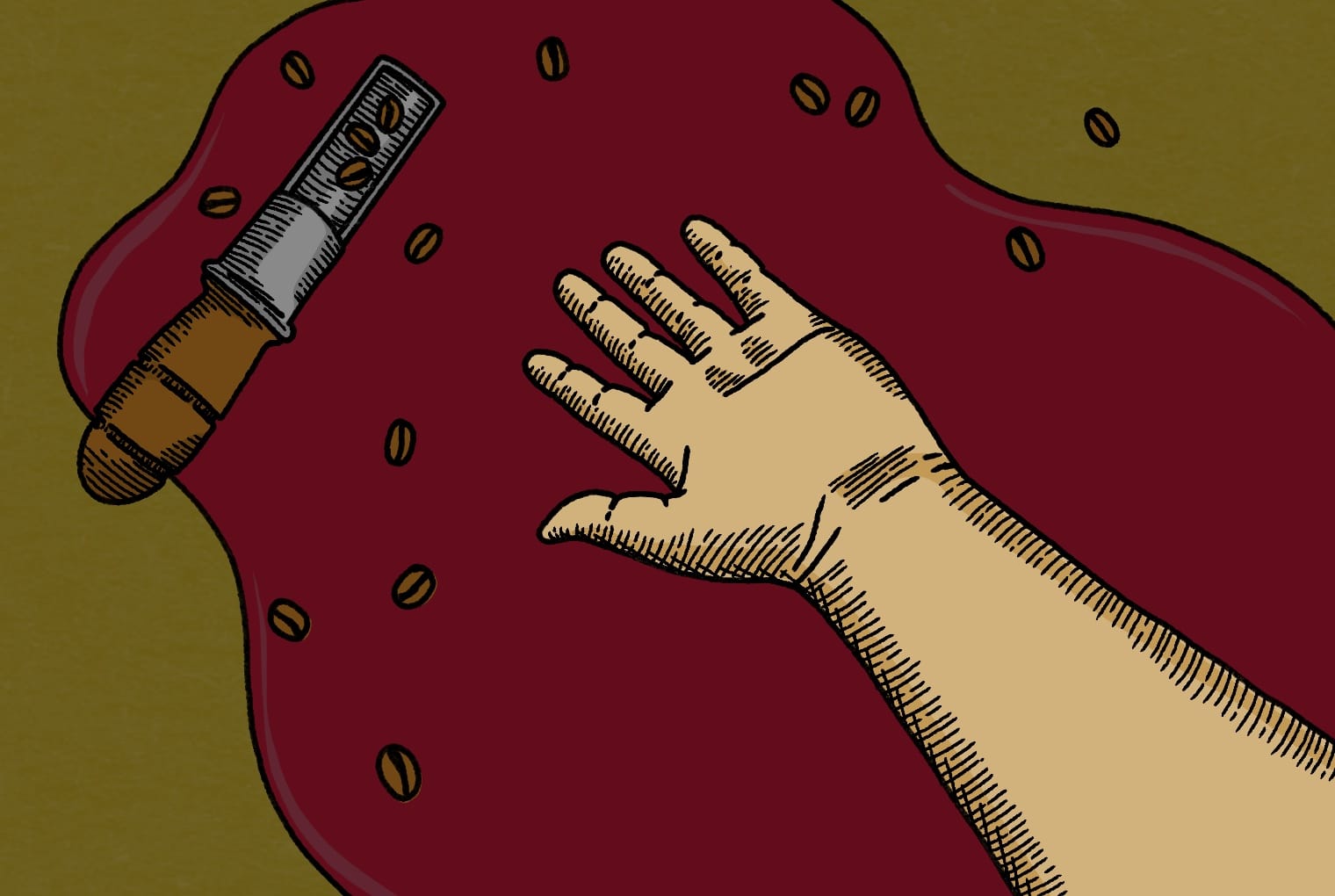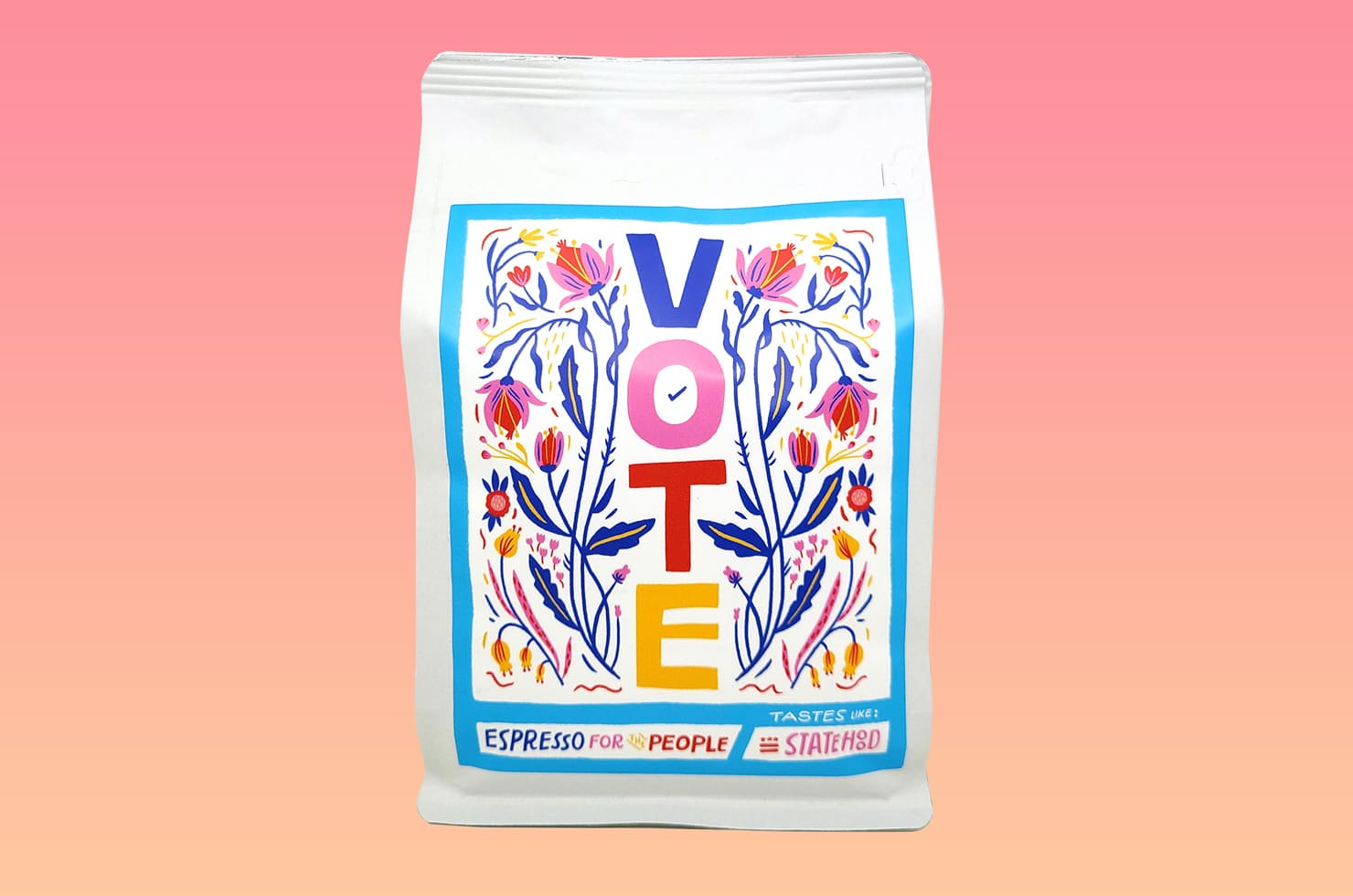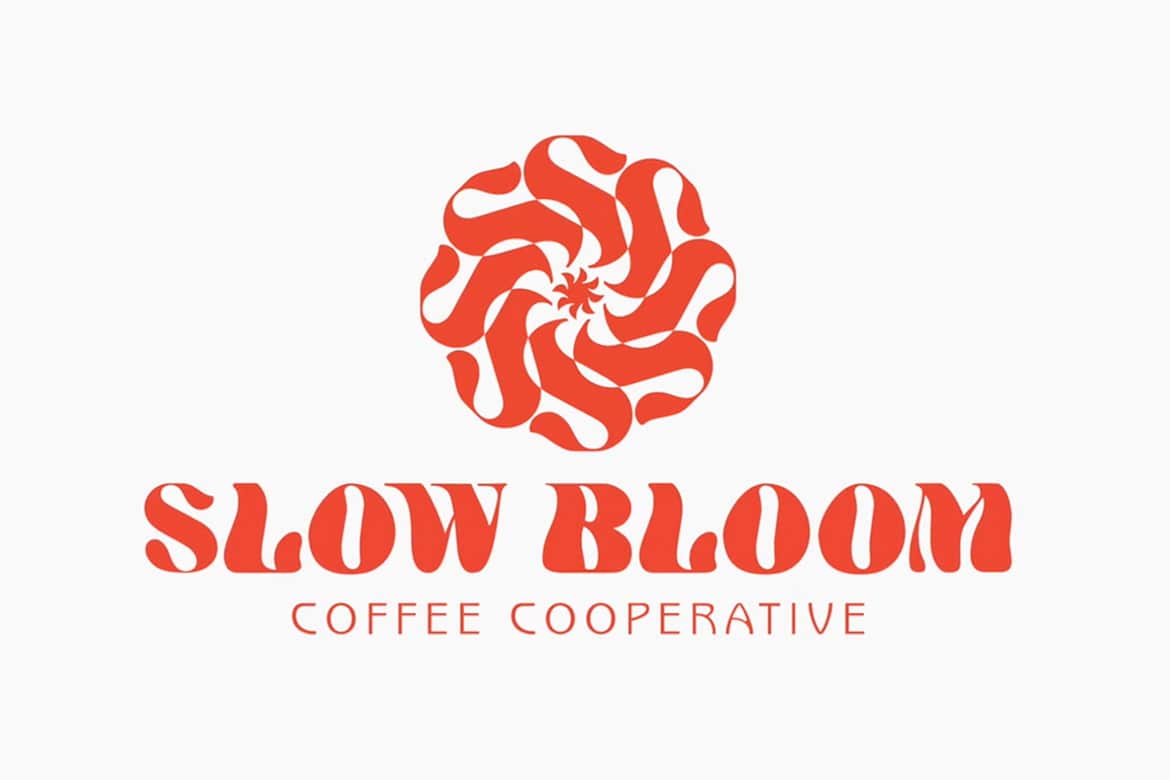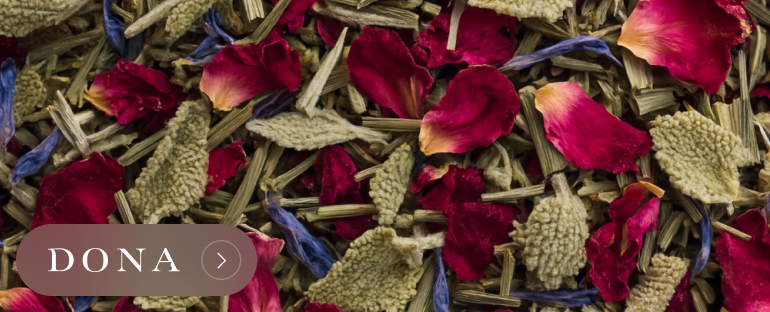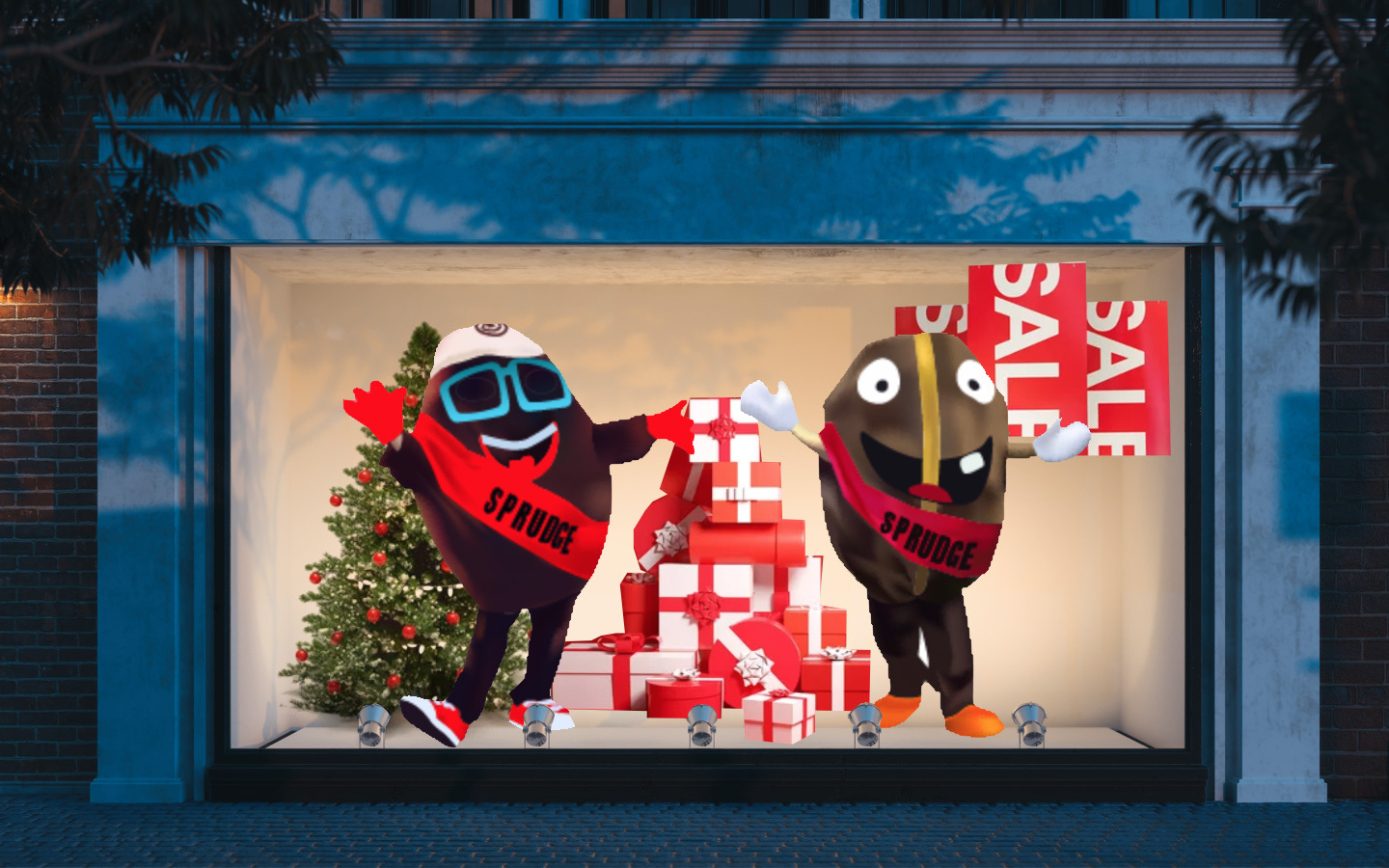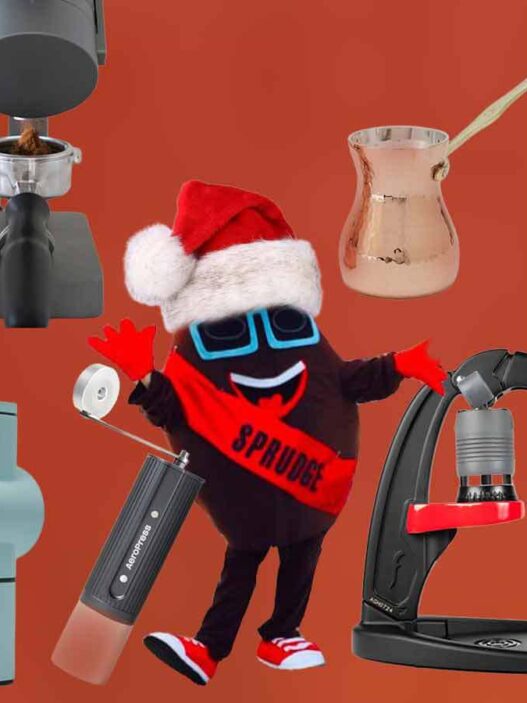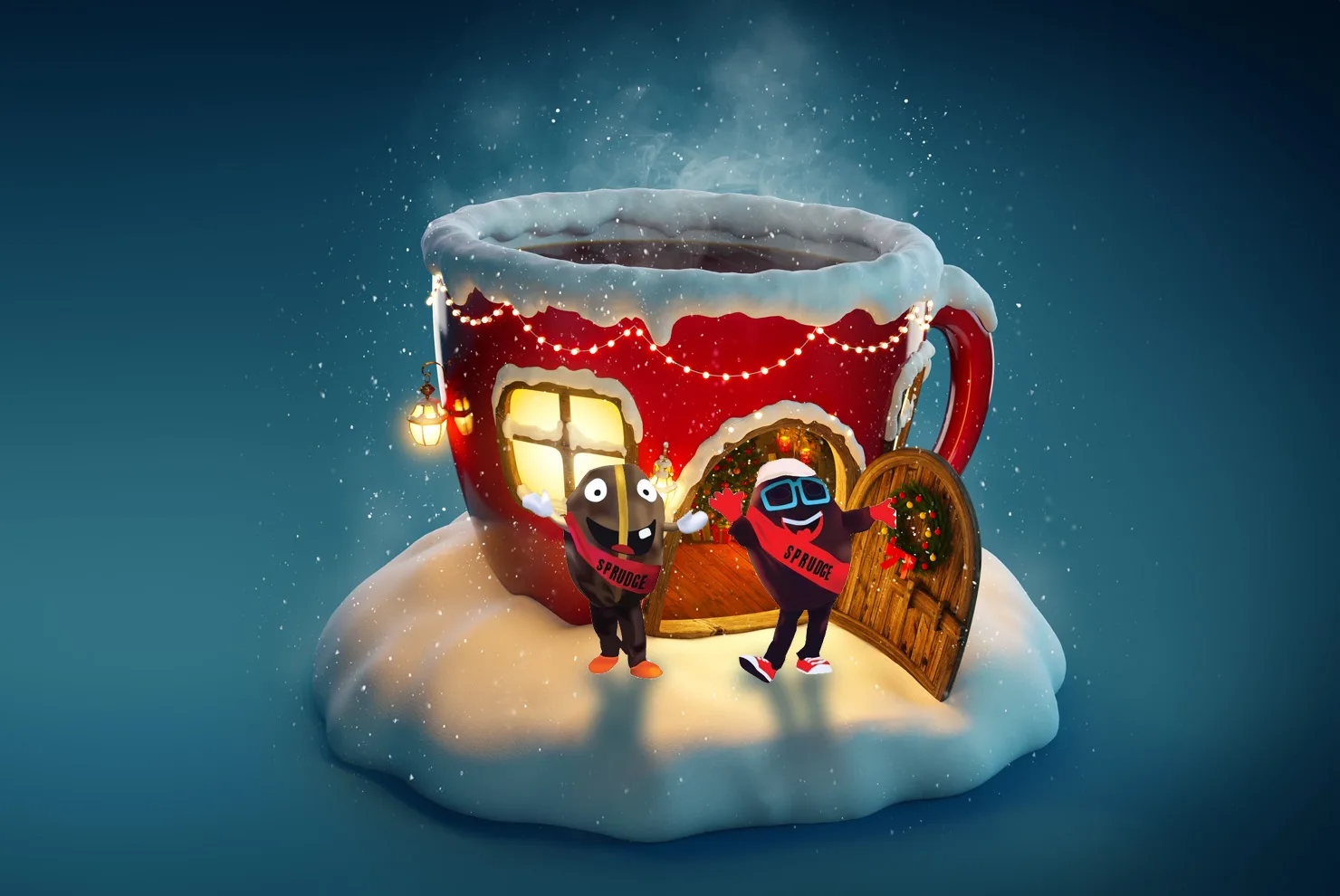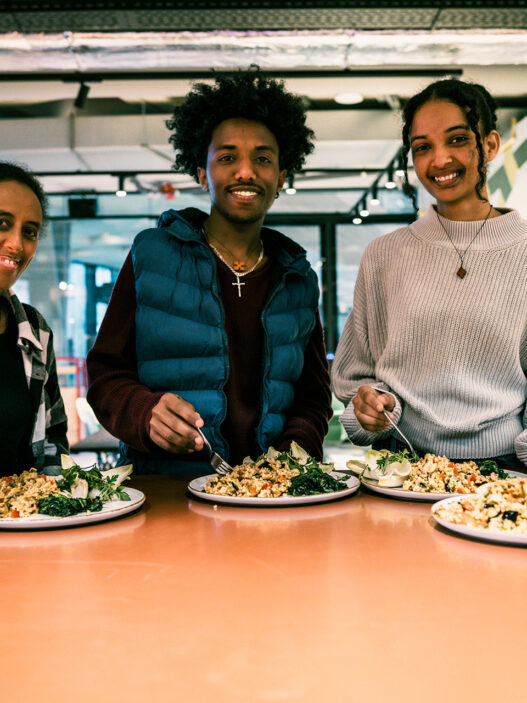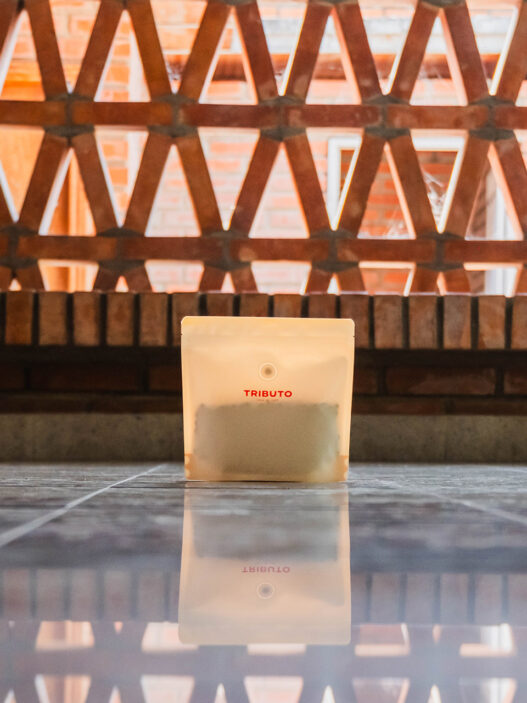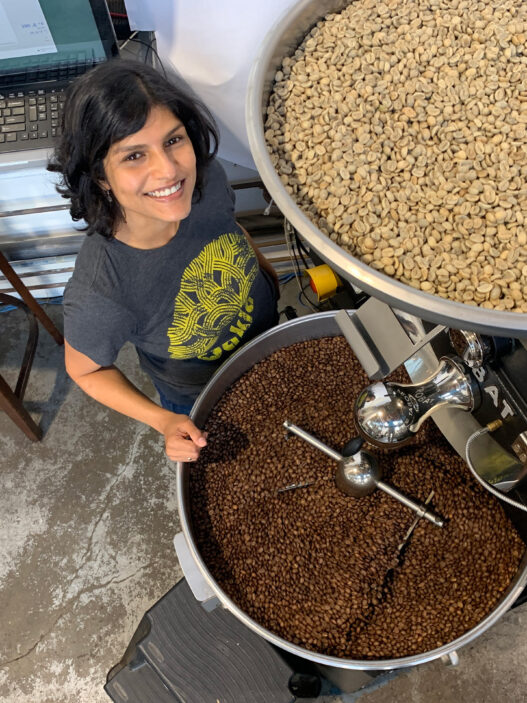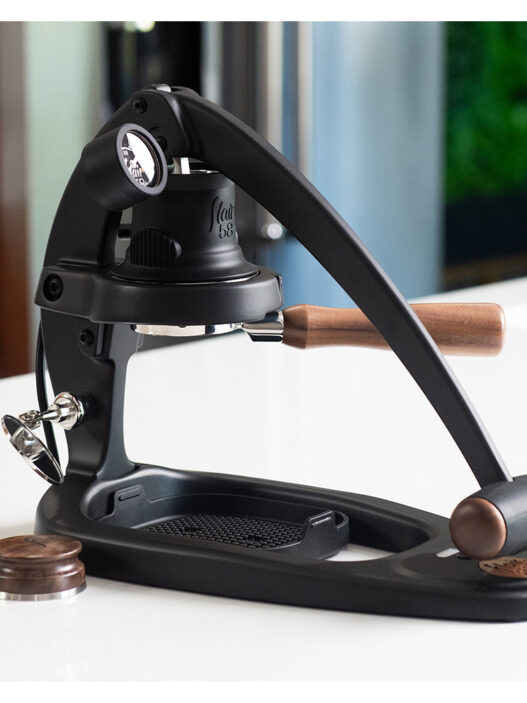Welcome to Halloween Week on Sprudge Presented by Pacific Foods Barista Series.
“Headroaster wanted for work at a local roastery in a remote, but beautiful, PNW location. The less you know the better.”
I have to admit the ad was intriguing. The last part was what got me: “The less you know the better.” Did that mean the less one knew about coffee roasting the better? Did they want someone to train from the ground up? Or did it mean the less you knew about the location, or company itself, the better?
I had to apply. I’ve been out of work since the pandemic, laid off by my company as our retail cafes began to close and business ran off a cliff into the rocks below. I’d spent 10 years working to make it to a head roaster position and wasn’t going to quit now. So I emailed my application to the job ad and, to my surprise, immediately received a reply. They could interview me the very next day.
The directions to reach the roastery were definitely remote. I had to take a ferry, drive far into the mountains, and travel on backroads barely recognized by my GPS (and that was before I lost service).
When I pulled up to the cafe, however, I was pleasantly surprised. This was a homey smalltown coffee bar sat in a swanky log cabin where people sipped coffee and ate pastries. Behind the cabin, down a freshly paved asphalt road, stood a large tin warehouse. I could see the smokestack from the roaster, white smoke curling into the sky. Large evergreens and redwoods and perfectly manicured lawns surrounded the property.
I looked for a sign of some kind to find out the company’s name—still a mystery to me—but I saw no distinguishing typography of any sort. The unmistakeable smell of coffee roasting permeated the air as I got out of my car. I saw small bits of chaff littered in the grass and bushes.
As I walked up to the cafe and a man from the porch of the coffee shop rose to greet me. “You must be Peter,” he said.
“How’d you know?”
The man just winked.
“Let me show you around.”
The man told me his name—I think—but in all the excitement, I forgot it. He was nattily dressed in a fresh blue suit, which felt a bit corporate and out of place here in the woods, but definitely not a deal-breaker. We walked into the cafe.
“Hi Elyse,” the man said to the barista behind the counter, “This is the potential new roaster.”
“Hi!” replied the girl with a full smile.
“What’ll you have, Peter?” the man in blue asked me. “Cortado,” I replied.
While the barista dosed the milk and weighed the shot, I looked around. All the equipment was top notch. Paddled espresso machines, sleek grinders, glass bulk brewers, automatic pour-overs, handmade aprons, the list went on. I was more or less expecting a second-wave-dark-roast-cafe deep in the dark woods with cheesy menu items, lots of syrups, and dry pastries—instead this was a world-class specialty coffee experience.
“We just rebuilt the roastery after the fire,” the man in blue said as we drank cortados and began to walk around the facility. “Though we don’t like to advertise the place. You’re probably wondering why you’ve never heard of our company before, huh?”
I was, in fact, wondering many things. Nobody has heard of this place before, not just me. And also, what fire?
“We white label coffee for local roasters,” the man went on. “You know what white labeling is, right? Companies source us to do their roasting and we slap whatever label they want on it. Anonymity is key. We’re not the coolest company in the industry but we got a lot of big customers. Some of the biggest in the world.”
***
I accepted the job on the spot, and signed my paperwork the very same day. Full benefits. Decent pay. I almost felt like an imposter, and tried desperately to act as though I was fully capable of managing a giant warehouse by myself. One of the requirements of the job was that I rent a small cabin on the property to stay as close to the roastery as possible. I didn’t mind; I had no partner, no commitments, no family that I saw other than on Christmas and Thanksgiving. There was only one strange part of the agreement terms, a sub-clause hidden there in the contract between my benefits and my signing bonus.
Employee shall not witness, take possession, query, or otherwise investigate green coffee sourcing and storage practices while an official employee of The Company.
“Trade secrets and all I’m afraid!” the man in blue said when I asked about it. “Feel free to talk it over with your lawyer”—what lawyer?— “and in the meantime, please, don’t go in that door.” He motioned to a door with a padlock at the far end of the roastery. “The less you know the better. Now here,” he handed me a thick three-ring binder.
“All the previous roaster’s notes are in there. The conveyor belt will deposit the green coffee directly into the roaster with a number. Just read the book to figure out how to roast each number and I assume you’ll figure out the rest.” The name of the previous roaster who the binder had belonged to was blacked out on the front.
The days were lonely but I could listen to whatever music I wanted at whatever volume. No one bothered me. No one even checked up on the coffee. There were times when I felt like I was losing it a bit; I heard strange noises in the night, would occasionally catch glimpses of movement in the shadows, but this is just normal life-in-the-woods stuff, I figured. Everyone gets a little jumpy out here. I hoped the coffee was good; the man in blue assured me that a Q grader off-site was cupping every batch and would give me notes.
***
My last day of work started out simple enough. I was cleaning the roaster. The rains had started by then and the cafe was closed to public guests. While vacuuming around the cooling tray I found a little fleck of grayish-white organic material. I looked closer. It was a piece of bone.
Probably just an animal got into the coffee shrubs. People have found all kinds of crazy things in bags of coffee: screws, bottle caps, bullets. This was just one of those things.
That night I couldn’t sleep. I walked back over to the roastery from my little cabin and began sorting out batches for the next day’s work. Then I heard it—“click”—and watched in the dark as the door to the locked green room creaked open. I had to go in, at least to make sure that there were no intruders.
The room beyond was not entirely unusual. Rows and rows upon rows of green coffee lined warehouse racks. I had to look closer. I sliced open a random bag of green coffee with my handy boxcutter and peered inside just to take a look. What I found was shocking: the bag contained maybe 50% coffee cherries. The rest was a melange of dried black beans, mold, rocks, sticks, and crunchy dead bug carcasses, plus whole handfuls of the little flecks of sharded bone I had discovered previously in the roaster. I wandered down another aisle until I saw a large whiteboard listing the names and prices of several coffees.
The prices were criminal. They were murdering producers at this rate.
From the dark, I heard a voice.
“You shouldn’t be in here.”
“What is this” I responded. “C-market coffee?”
“The less you know the better,” responded the voice.
“I thought you were local roasters!” I shouted into the darkness.
“We are,” said a voice I finally recognized. “We are the only local roaster left. We’ve bought out the rest. There’re no such things as independent shops anymore. It’s all a front. Everyone is owned by someone…”
I stared at the man in blue, horrified as he slowly walked toward me.
“You can’t do this!” I shouted.
“We already have,” he said. “Local coffee is now, well… dead. It’s all white label now, and what goes into our white label bags is a trade secret.”
The lights turned on, flood lights so bright I was momentarily blinded, but even then in this moment I could see we weren’t alone. I was surrounded. There was no escape.
“I did tell you not to go in here,” the man said with a sigh, walking towards me with a clipboard. He called back over his shoulder to… someone, one of the other figures in the room. I couldn’t quite make them out in the blinding brightness, but he said it with the cool, resigned tone of corporate delegation.
“Add him to the next batch.”
Levi Rogers is a coffee roaster based in Portland, Oregon. This is his first feature for Sprudge.
Illustration by Laura Clark (@azn_barista).




